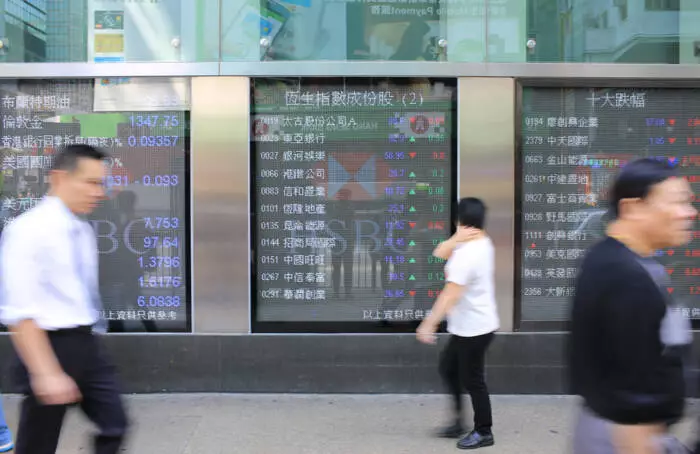Recent policy shifts in China have sparked significant enthusiasm among investors, leading to a remarkable rally in the Hang Seng Mainland Properties Index (HMPI), which soared by an impressive 30.64% by the end of September. This could be attributed to market optimism surrounding the Chinese government’s supportive stance towards the real estate sector, which has been grappling with challenges in recent years. Stocks that particularly stood out include Longfor Group Holdings Ltd., which experienced a staggering 56.44% gain, and Shimao Group Holdings Ltd., marking an impressive 69.81% increase. These developments reflect a renewed confidence in an industry that plays a pivotal role in the overall economic landscape of China.
Simultaneously, the technology sector also witnessed substantial growth, with the Hang Seng Tech Index (HSTECH) climbing by 20.23%. Major tech players like Baidu and Alibaba led the charge, ending the week with gains of 17.73% and 17.55%, respectively. This momentum not only highlights the resilience of China’s tech sector in the face of regulatory challenges but also underscores a potential shift in investor sentiment towards more aggressive positions in technology amid favorable policy dynamics.
The ripple effect of China’s policy changes extended beyond equities, impacting commodities as well. The increased buyer interest in iron ore—up by 15.62% for the week—can be attributed to expectations of a revival in construction and manufacturing activities fueled by governmental support. This is a clear indication that market participants are banking on a robust economic rebound, translating into higher demand for raw materials.
Interestingly, gold prices also saw a mild increment, affirming its status as a safe haven amidst fluctuating market conditions. It climbed by 1.38% to reach $2,658, reflecting broader trends in risk management among investors. The developments in the Chinese market created a ripple effect felt across the global landscape, with not only commodities but also equities in Australia experiencing minor upticks, driven primarily by the positive sentiments in Asia.
In the currency market, recent inflation data from Tokyo has posed implications for the Japanese yen, effectively dampening the likelihood of an anticipated interest rate cut from the Bank of Japan as early as Q4 2024. As a result, the USD/JPY pair surged to a significant high, hitting 146.491 before retreating. This fluctuation in currency value is emblematic of the interconnected nature of global finance—where shifts in monetary policy perceptions can significantly impact export-driven stocks in Japan.
Such changes have had favorable outcomes for prominent companies; for instance, Tokyo Electron saw an impressive 13.32% rise in its share price, while Softbank also advanced by 6.19%. Notably, the automotive and electronics sectors—represented by Nissan Motor Corp. and Sony Corp.—managed to secure gains of 5.47% and 7.03%, respectively.
As market participants maneuver through the complexities of evolving policies and economic data, the importance of staying informed cannot be overstated. The shifts in Chinese policies, alongside developments in Japan, serve as critical focal points for traders. Keeping a keen eye on real-time data and expert analysis will be crucial for adjusting strategies in response to the dynamic nature of Asian equity markets. With uncertainties still prevalent, an agile approach will be vital for successfully navigating these fluctuating landscapes.

